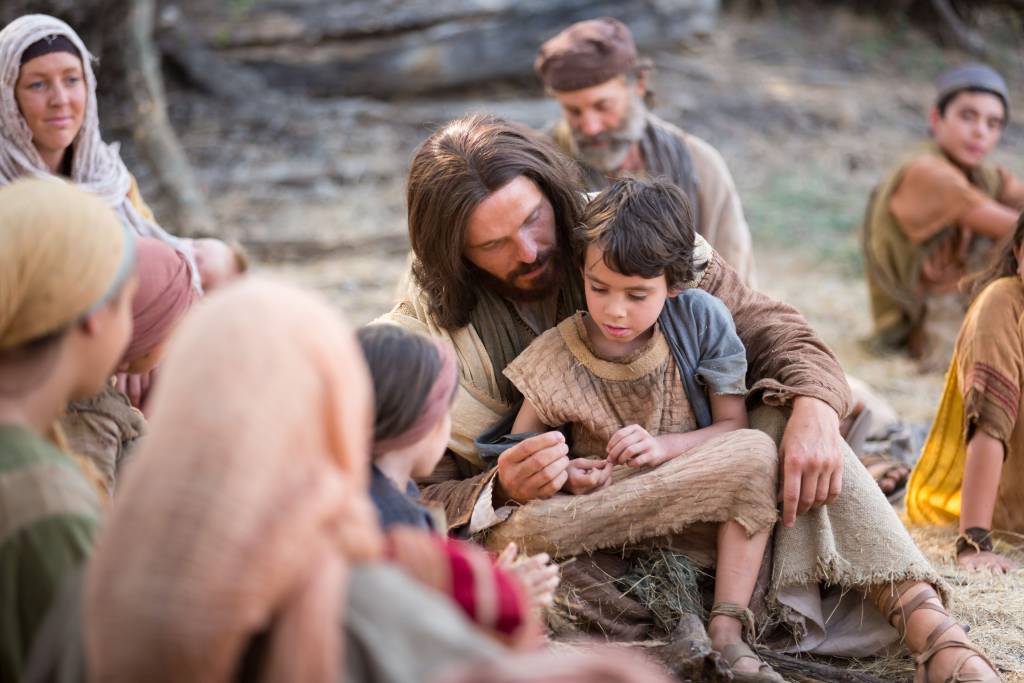“I think whenever you start including children in worship, you should expect a certain amount of cynicism.”
Someone once said this to me when we were discussing what I meant by “welcoming children” into corporate worship spaces. In the midst of the conversation, I didn’t really take time to address the statement, but it stuck with me. And I disagree.
I don’t think we should ever expect cynicism when it comes to welcoming people into our worship settings. Expecting that the church will react with cynicism is not how I choose to approach ministry to children within the larger church context.
Expecting the worst often brings about the worst. And I don’t want that. And I’m willing to bet, neither do you. The church is the body of Christ. His Spirit indwells their midst. So, my expectation is that the Church will react to and welcome children just as Jesus did, just as He showed us and demonstrated while among us.
The disciples were the first to perhaps react with cynicism when children were brought into Jesus’ presence. They did so with seeming good intention (to let Jesus rest) but with a lack of insight and understanding of Christ’s heart (Mark 10:13-15)

One day some parents brought their children to Jesus so he could touch and bless them. But the disciples scolded the parents for bothering him.
And how did Jesus handle that moment?
When Jesus saw what was happening, he was angry with his disciples. He said to them, “Let the children come to me. Don’t stop them! For the Kingdom of God belongs to those who are like these children. I tell you the truth, anyone who doesn’t receive the Kingdom of God like a child will never enter it.”Then he took the children in his arms and placed his hands on their heads and blessed them.
That word “angry” is sometimes translated “indignant” or “very displeased.” It’s the same word used to describe how the Pharisees felt when the children were calling out “Hosanna to the Son of David” during the Triumphal Entry and when Jesus healed someone on the Sabbath. The disciples felt that way when Mary Magdalene anointed Jesus’ feet with oil and “wasted” it and when James and John’s mom asked if they could sit next to Jesus in heaven. It’s overall…not a good feeling. It indicates a general unhappiness with a person or situation.
But then, notice what Jesus does.
He doesn’t just get angry. He gets angry but then explains why.. He explains that the Kingdom of God belongs to those who are like children.. He explains that the disciples needed to accept the kingdom like these children if they ever wanted to truly enter in.
Then He showed them what to do. He took the children IN HIS ARMS and placed his hand on their heads and blessed them. In front of the disciples. Demonstrating before their eyes exactly how He wanted them to treat children. Demonstrating how to receive the kingdom of God.
I’m willing to bet that in the future, the disciples made sure that the children were never turned away. They had seen Jesus and they understood. I picture in my head a future time where not only was Jesus holding children and blessing them, but the disciples were too. I imagine that in their churches after Jesus had left, children were in their midst, blessing and being blessed. In fact, I can assume that children were there, considering that Paul writes specifically to them in letters that were read aloud to the congregation.
Some of you have tried this approach. You’ve asked your pastor if children can come and worship with the congregation and been turned away. You’ve presented ideas for a Family Worship Service or an intergenerational gathering and been dismissed. You’ve shared your heart with parents and ministers about the importance of allowing children to see faith modeled, to participate in liturgy, to be active members of the congregation and have faced… cynicism.
And, at this point, you may even be angry, indignant, or very displeased. But we have this beautiful example from Jesus to keep going.
Take the children in your arms. Bless them. Every chance you have, demonstrate the heart of welcome and the love of Jesus to them.
Because your actions speak volumes. Your testimony shines brightly. The disciples turned the children away because they didn’t understand. They didn’t know. But Jesus showed them, just as He has shown us. Let’s expect the best just as He did. In doing so, you will be demonstrating to all who see how to receive the kingdom of God.
I’m not a huge sports fan (let’s be honest, I’m not any kind of sports fan) but I do like this quote by Michael Jordan: “If you accept the expectations of others, especially negative ones, then you never will change the outcome.” Let’s not accept that the expectation is cynicism; let’s expect to find Jesus. Let’s expect to receive the kingdom of God.
How Can ReFocus Help?
Transitioning to a more generationally inclusive format within your church can be challenging. ReFocus Ministry offers several resources to journey with your church and leaders as they move towards connecting generations, supporting family ministry, and creating multi-generational worship and learning experiences.

REFOCUS COACHING & CONSULTING – Your ReFocus coaching experience begins with a FREE 30-Minute Initial Coaching Call and ends with a congregation connected to one another and their community like never before. Together, you and/or your team will discover the generations in your church, identify the bridges and barriers to intergenerational interaction, and create an action plan to grow your community.
WHEN FAMILY MINISTRY DOESN’T WORK and WHEN GENERATIONS COLLIDE are webinars/seminars for ministers and volunteers who are finding it challenging to move towards more family centric or intergenerational models of discipleship. Transitioning a ministry to a more intergenerational or family-focused approach can be difficult and it is tempting to think it just doesn’t work. But with the right tools, churches can discover the style of ministry that best fits your church, your families, and your community
These services and more can be found on our website. To sign up for your FREE initial consult, fill out this form and we will be in touch.
You do not have to do this alone. We are here to support, encourage, and equip you for the work of generational discipleship in your church. Contact us today!
About The Author

Christina Embree is the founder and director of ReFocus Ministry. She holds a masters in ministry focused on Children, Youth, and Family Ministry and is completing her doctoral degree in spiritual formation with a focus on age segregation and intergenerational ministry. In addition to coaching churches of multiple denominations and traditions all around the globe, Christina serves as the Minister of Generational Discipleship for the Great Lakes Conference of the Brethren in Christ and as a pastor at Plowshares Brethren in Christ in Lexington, Kentucky. She is widely recognized as a speaker and author in the areas of generational discipleship, intergenerational ministry, and family ministry. As the mother of three children, she is familiar with the challenges of faith at home and pastoral ministry. She along with her husband Luke share a love for the church, their community, and the global work of peace and restoration through Jesus.


